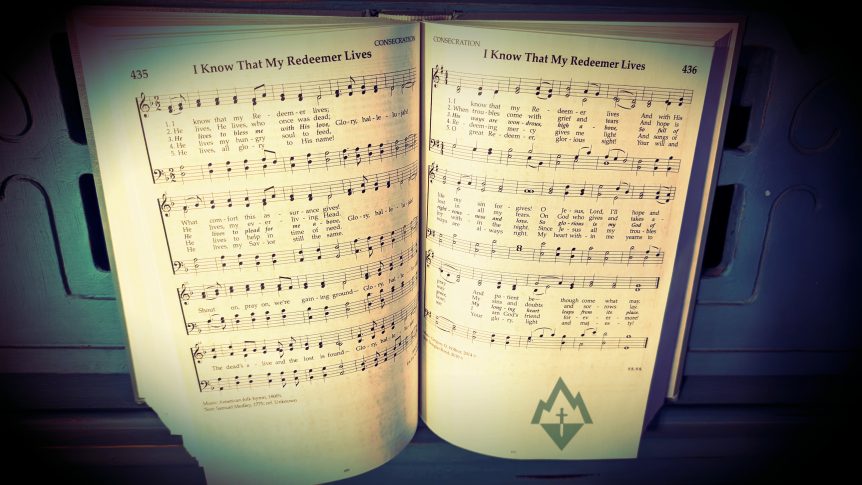We will be beginning the first of a six-part series (to be spread out over the next couple of years) on SMBC Distinctives. Our six key distinctives are as follows: Reformed, Baptist, Expository Preaching, Postmillenial (Optimistic Eschatology), Psalm and Congregational Singing, and Family Integrated.
For this first 4 week series we will be focusing on the way that our church sings and responds to the command to “speak to one another in psalms and hymns and spiritual songs, singing and making melody in your heart to the Lord” (Col. 3:16). For a sermon on that particular verse see –
Pastor Luke will kick off the introductory sermon on April 27th preaching through Ephesians 1:15-22 and evaluating how singing is a means of grace for the modern believer.
Why do we sing?
At the core of this topic is the simple question of why? Why do we sing at church, and for what purposed end? Is singing required? What should singing accomplish in the life of the believer, particularly in the corporate setting?
Many of us who have been in the church for any period of time recognize that we sing for various reasons: out of a love for God, a desire to speak truth back to God, to honor and exalt God, to obey various commands in Scripture, to encourage, rebuke, exhort and instruct etc.
Many of us also likely have preconceived notions and ill experiences in largely emotionally led worship settings common in the evangelical church broadly speaking. We ought to sing. We ought to worship through song, and we must seek to do so biblically.
How do we sing?
How do we consider normative and regulative principles of worship? How do we employ our voices as instruments? How do we make use of instruments and technology well? Who should lead singing? All these questions are vital to consider if we are to ensure that God is properly glorified, and the saints edified in the process.
Generally speaking we believe that the congregants voice should be the primary instrument employed. Further we believe that singing in four parts allows for everyone to find a part suitable for their range and comfort. This means that men needn’t be the most quiet, nor struggle to sing high melodies, and that the ladies can naturally find the range that suits them to provide true harmony.
Who should lead I will consider briefly. The intent of congregational singing is to emphasize the corporate nature of our singing and not put focus on any one in particular. As singing is primarily didactic in nature, we believe elder qualified men and gifted brothers should assist in leading or conducting the singing. The pastor is the worship leader in this sense, governing the selection off hymns as well as the direction on the Lord’s Day.
It pleases me to see that our church has men who sing loudly, and this is something that is not common in many churches. While the range is part of the solution, the content also fuels that reality.
What do we sing?
Psalms, hymns, and spiritual songs. There are multiple ways of interpreting this phrase with one extreme seeing these as simply three categories within the psalter (exclusive psalmody) and the other extreme seeing there to be no restrictions as to what is permitted (see churches that employ secular music in “worship”). Categorically, we can see all three terms as harmonizing and extensions of one another. The Psalms are the shepherd’s song book that Christ and his disciples would have been well acquainted with and are fit for every occasion.
Hymns are other songs found in scripture or based upon scripture in a tight (if albeit paraphrased) fashion. We see songs in the Pentateuch, historical writings, prophets and in the NT writings of epistles (various doxology) and culminating in Revelation’s heavenly hymn of the lamb who is worthy. Hymns throughout church history have been written to closely reflect biblical truth and to keep the focus on instruction.
Spiritual songs have been largely abused to include any feeling or lyrics that a person simply possess as a Christian. Here lies much of the disagreement. Hymns are not exclusively old (many modern hymns exist and are being written) and spiritual songs are not to be equated with contemporary either. As such, spiritual songs cannot be divorced from scripture and the intended subject matter but may focus more on a theme or truth taught, or merely a reaction to said truth. As i believe this is left intentionally vague to modern ears, we must have some charity in particular applications.
Most importantly, what we sing must be more about proclaiming biblical truth and less about how we feel. The joy of singing these truths is that in doing so, we often feel joy.
Final Chord
Singing will be a part of the eternal state. Why, how, and what we sing matters because it is rehearsal for the future glory of the resurrected church. Let us sing robustly, in unity, the rich truths fit for all occasions– joy, sorrow, indignation, triumph, and in gratitude worship the Triune God.

